

The film Kill Your Darlings delves into the story of the three most famous Beat Generation writers: Allen Ginsberg, Jack Kerouac and William S. Burroughs, who were involved in a murder at Columbia University. Based on Bill Morgan’s book Beat Generation in New York: A Walking Tour of Jack Kerouac’s City and New York University’s printable walking tour, we’ve put together a list of the best authentic Beat Generation spots to grab a drink so you can join in the history of these literary greats.
7. Caffe Reggio – 119 MacDougal Street
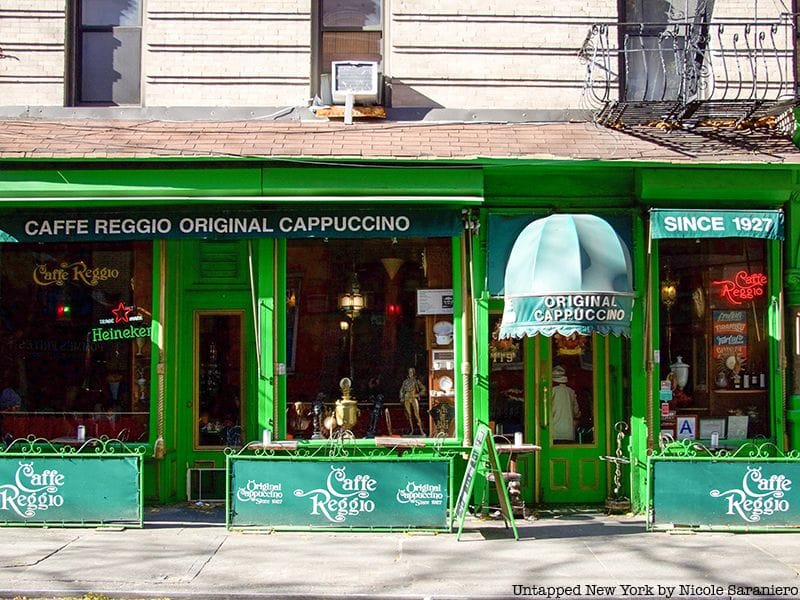
Sure, the Beat writers spent a lot of time in Caffe Reggio, but the restaurant actually prides itself on one other pretty neat historical detail about their establishment. Their crown jewel is the “Original Capuccino.” According to them, they were the first place to bring the now-famous caffeine drink from Italy to New York City. Caffe Reggio is one of our favorite Greenwich Village coffee houses, and you can visit it with us on an upcoming coffee tasting tour!
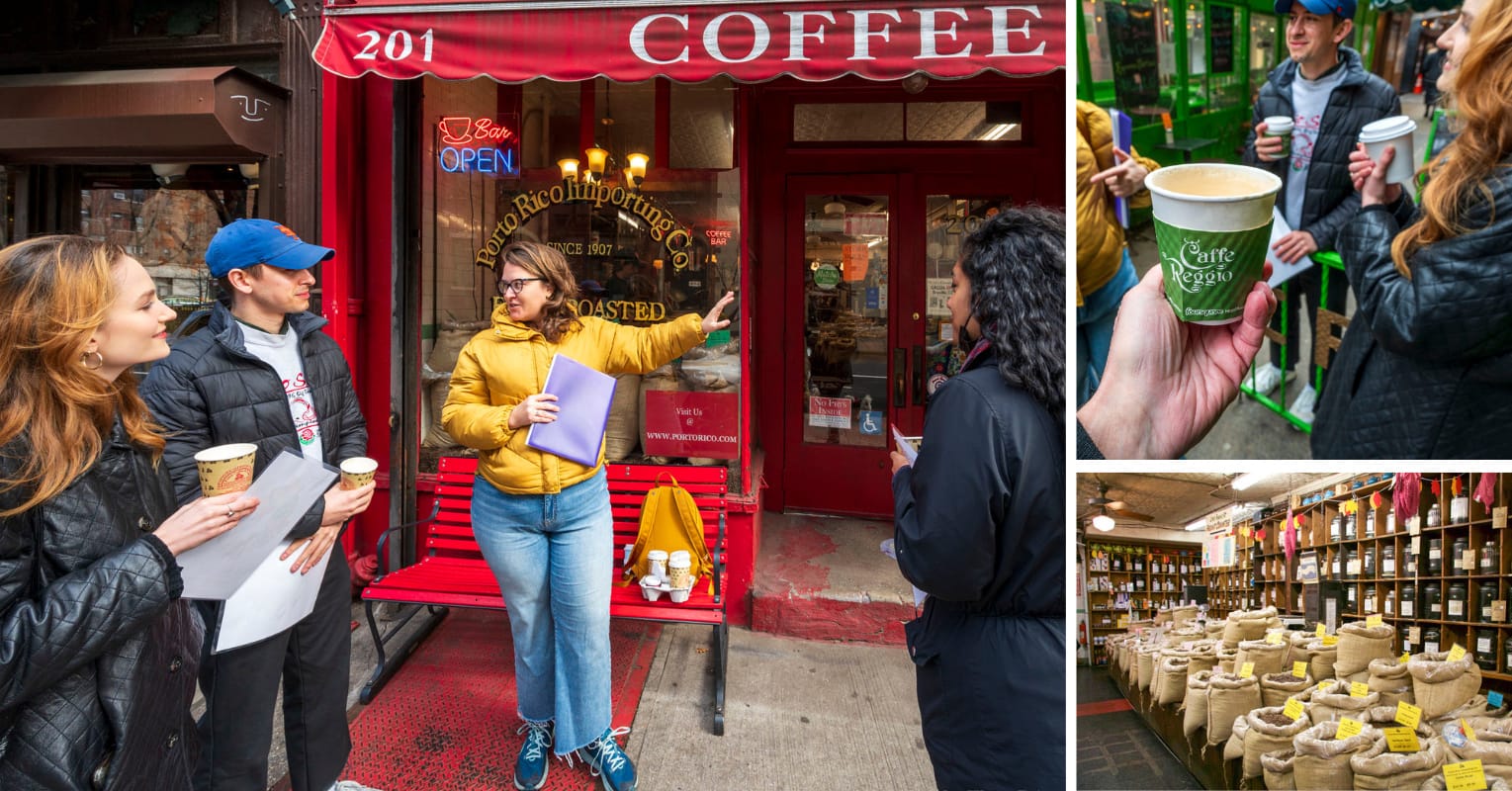
Greenwich Village Coffee Tasting Tour
Explore the Manhattan birthplace of New York City's coffee history while sipping an espresso, drip coffee, and cappuccino from the city's oldest cafes!
6. Cafe Wha? – 115 MacDougal Street
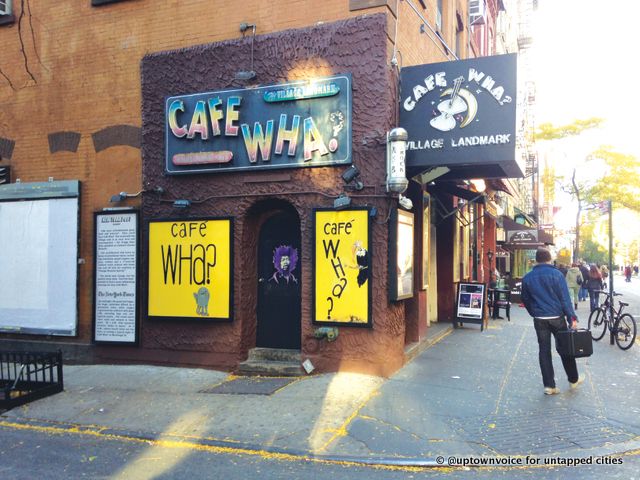
Cafe Wha? boasts, “Allen Ginsberg regularly sipped his cocktails here.” This spot hosts live music every night of the week, with a house band that rocks every Wednesday through Sunday with its own taste of both contemporary and throwback jams–all while staying true to its Beat Generation roots. Fun fact: this is where Bob Dylan had his first NYC gig, where many Beat Generation writers were in attendance.
5. Fat Black Pussycat (formerly Kettle of Fish) – 130 West 3rd Street
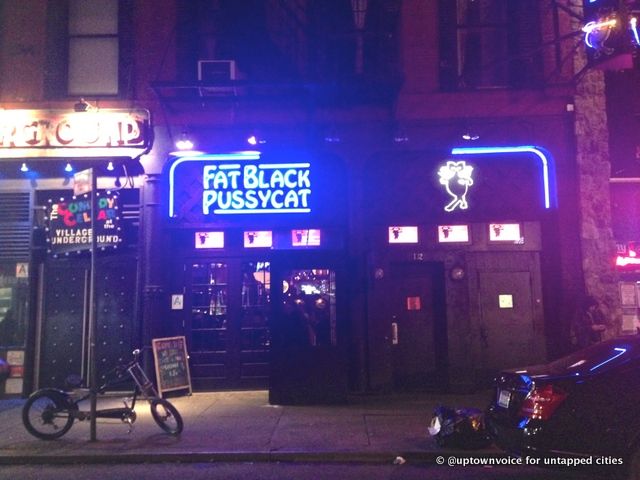
At the location of the former Kettle of Fish now stands Fat Black Pussycat. Kettle of Fish has been around since 1950 (though their current location is at 59 Christopher St.) and used to be a hangout for Jack Kerouac and Bob Dylan. Ephemeral New York excerpts Door Wide Open: A Beat Love Affair in Letters by Joyce Johnson, a writer and former girlfriend of Kerouac, where she mentions their experiences in Kettle of Fish and the bars on nearby MacDougal Street: “In the small hours of the morning, Jack and Gregory [Corso] left the bar, followed outside by two men, who beat Jack up, banging his head repeatedly against the curb and breaking his nose and his arm. To his horror, he found he lacked the will to defend himself…” ENY also has a vintage photo of the couple standing in front of the old Kettle of Fish’s bright red neon lights.
4. White Horse Tavern – 567 Hudson Street
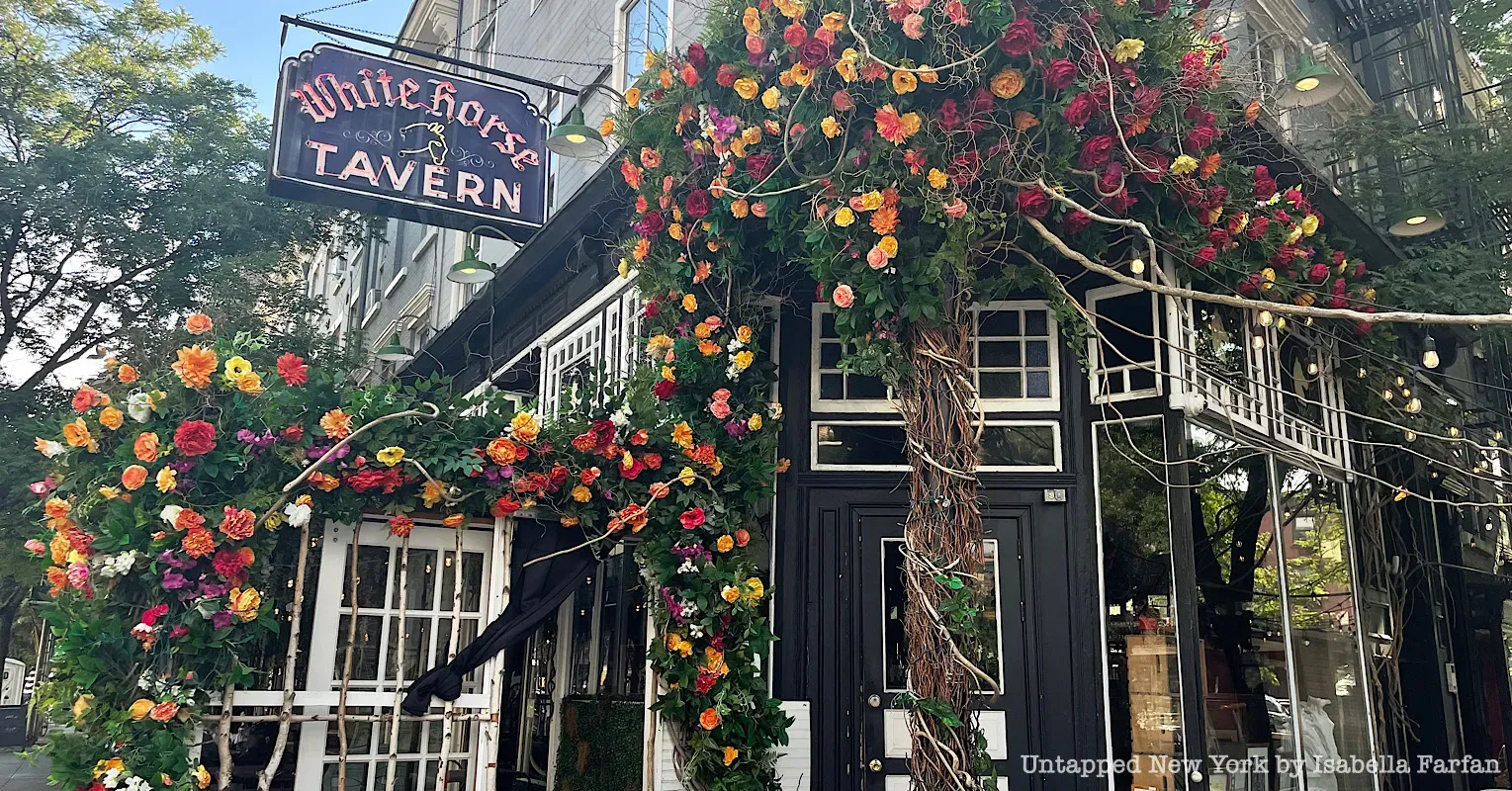
White Horse Tavern is a spot in Greenwich Village that was frequented by many literary greats since its opening in 1880. It is certified as a Poetry Landmark by the Academy of American Poets. It was here that poet Dylan Thomas took 18 shots of whiskey, causing him to collapse outside of White Horse and later die of alcohol poisoning. It was also a popular haunt for Ginsberg and Kerouac, as well as later New York School writers like Frank O’Hara and John Ashbery.
3. Washington Square Diner (Formerly Pony Stable Inn) – 150 West 4th Street
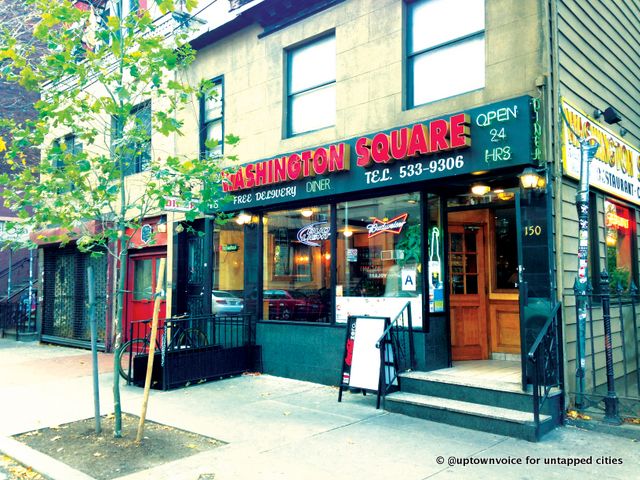
The Washington Square Diner is built on the location of the former Pony Stable Inn, one of the first lesbian bars in the city. This is where Allen Ginsberg, then a young Columbia College student, met Gregory Corso. Bill Morgan writes, “Corso showed his poems to Ginsberg who was greatly impressed. Corso told Ginsberg he had been watching a neighbor make love in the building across the street from his apartment window, and it turned out to be Allen himself and a girlfriend.”
2. Minetta Tavern – 113 MacDougal Street
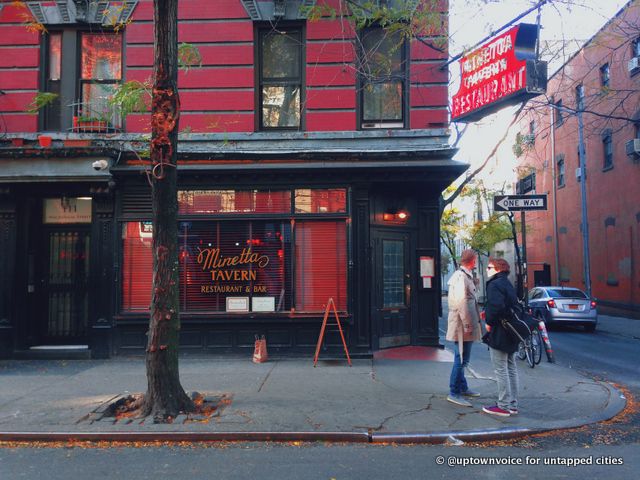
Minetta Tavern is another authentic Beat Generation hangout that still exists. It long predates the Beat Generation however–it was popular in the time of Ernest Hemingway. This Italian restaurant and bar is where regulars like William S. Burroughs bought out the bar for his friends, Allen Ginsberg and Lucien Carr (who was involved in a murder at Columbia) had private conversations, and Gregory Corso got into a bar fight with a man that involved smashing a glass bottle in the man’s face and slicing his own hand open.
1. Downtown Social(former Cafe Le Metro & The 13th Step Bar & Grill) – 149 Second Avenue
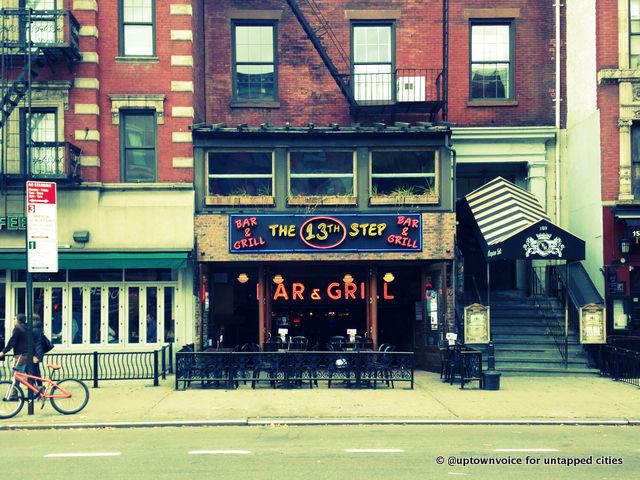
Cafe Le Metro was a spot that held regular poetry readings featuring many of the Beat Generation poets as headliners. Bill Morgan describes, “It was at the center of controversy in 1964, when it was issued a summons for hosting a reading that the city considered 'unlicensed entertainment.'" Ginsberg and many other members of the poetry community who used this space and other coffeehouses for readings fought the requirement for cabaret permits and won. Others who read or sang here include Julian Beck, Bob Dylan, Lawrence Ferlinghetti, Pete Orlovsky, John Wieners, and Diane di Prima.” The space was later turned into The 13th Step and is now a bar called Downtown Social.
Read on for 10 of the oldest surviving bars in NYC.

